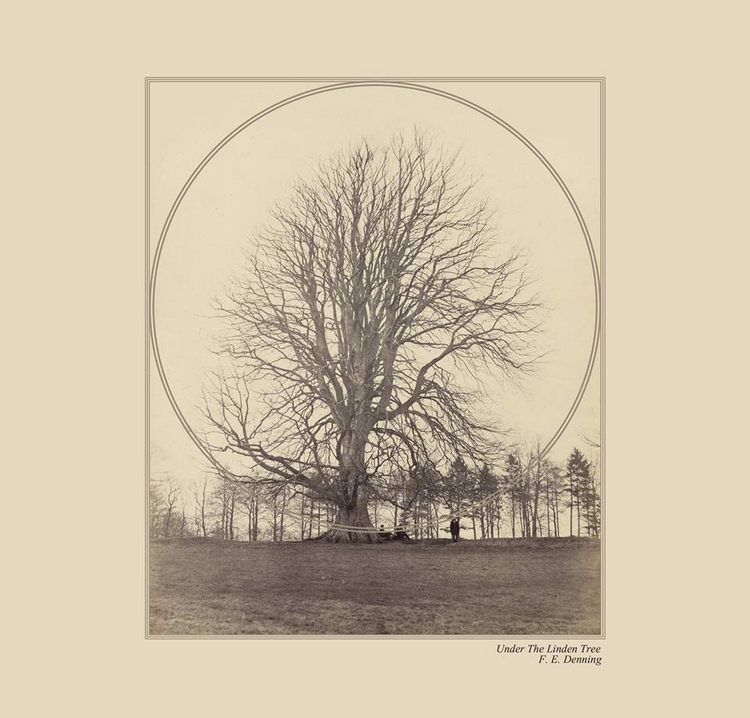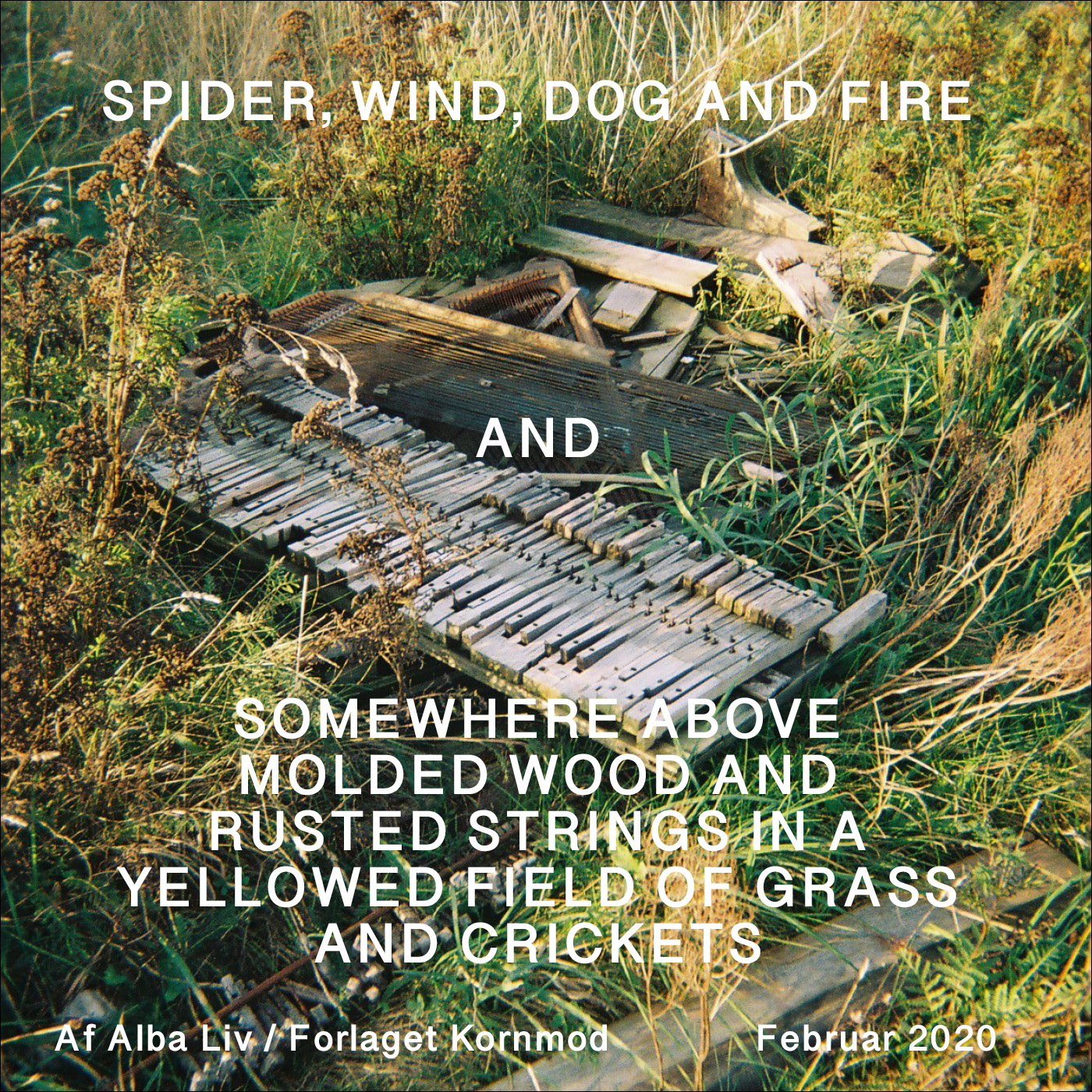F.E. Denning – Waves of unstoppable noise

F.E. Denning “Under the Linden Tree” (The Tide of the End, 2016) – Review by Andrew Hannah
On some ambient or drone records, there’s a feeling of stasis. As passages of music unfold – or don’t – as a listener you can feel moved without moving, your heart beats faster or slower, your synapses flicker to life … but physically things stay the same. It might be that this is the fault, or the intention of the musician, to highlight an inability to move or progress, to be stuck somewhere without hope of moving on.
The music of Copenhagen’s F E Denning does not feel like this; drones start small and rumble to earth shattering crescendos. While your heart pumps and your cortex is exercised, forests are decimated and cities crumble, laid waste by the force of Denning’s compositions on “Under the Linden Tree”.
It’s not just man-made or natural constructions being brought down on this wasteland of a record; Denning is turning his gaze on society from a point of isolation, away from the madding crowd perhaps sheltering from the gathering storm under the titular tree.
While “Cities of Light”, released through Posh Isolation, found F E Denning in a warm, almost melodic and welcoming place, “Under the Linden Tree” watches the lights go out in the city one by one, then block after block as the unforgiving waves of noise gather pace and sweep everything in their path.
Opening track “Letters of Light” feels like a last conciliatory nod to the fading luminescence of a place bustling with energy and hope. The first few minutes reflect the hum and buzz created by humans and machines in enclosed spaces; a drone begins in the distance, accompanied by scraping of strings and percussion which sounds like an unsecured door being buffeted by the wind. It’s prosaic enough, but as the pieces moves on, with horn sounds rising and falling as if conducted by the air itself and an organ puncturing the ambient noise around the halfway mark the composition treads a liminal between beauty and desolation before tipping over into the darkness, like an unforgiving winter taking over from a golden autumn.
The roar of “Journey to Weimar” hits you like a tsunami; reminiscent of the work of Ben Frost or Prurient there’s a sweep to what Denning does here that gets the heart racing. As the static piles up it creates a feeling of anxiousness or nervous anticipation at some approaching dread. But again, there’s a line on which the lonely figure walks, the noisier end of the piece, on a precipice ready to fall or to keep walking alone and forlorn, and it pushes against the brighter ambient notes.
If the Goethe references were not stark enough with the mention of Weimar, Denning pushes the leitmotif to its logical conclusion on the second half of the record. The bright notes fall away on the rattle of “Return to Wahlheim”, a portentous voice warns of … something. Although “The Sorrows of Young Werther” focuses on a personal pain and grief caused by unrequited love, Denning’s version of Werther’s journey takes that hopelessness and seeming inevitability and applies it to the wider world. The full horror of this realisation that all hope is gone comes with the blaring horns of final movement “Under the Linden Tree”; the noise overwhelms, there’s no solitude to be found away from the creaking, groaning masses and as the melodic lines fight to be heard over the crashing static they eventually have to cede to the physical weight of Denning’s compositional structures. The anxiety is gone, the body and soul accepts what is coming, the heartbeat slows to a stop.
“Under the Linden Tree” is honest in its treatment of modern society. Like Werther, F E Denning knows a resolution is required, but that it may be out of his hands. There’s something strangely satisfying in knowing an uncontrollable change is going to come – and like with the waves of incredible, unstoppable noise on this record, giving yourself over to something completely is the best thing you can do.
Full disclosure: F. E. Denning has previously been a frequent contributor to Passive/Aggressive.
Info: “Under the Linden Tree” was released in March.


